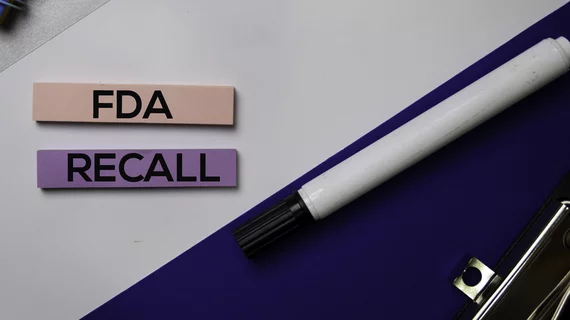FDA announces recall of SonarMed airway monitors after injury
Medtronic issued multiple recalls on its SonarMed airway monitors and acoustic sensors, used to monitor patient breathing on a ventilator and send relevant information on respiration to providers. The U.S. Food and Drug Administration (FDA) announced the recalls, the first for monitors that failed to identify obstructions and a second for acoustic sensors that hinder proper placement of catheters.
There has been only one reported injury stemming from the faulty devices. However, due to the risk of low oxygen levels, damage to lungs and tissue, and obstructed breathing, the recalls were ranked a Class I by the FDA—the most serious type.
What is being recalled?
A total of 1,945 SonarMed devices have been recalled, all of which were distributed to healthcare organizations and providers between October 2022 and October 2023. There are variations in the dates between the two notices—acoustic sensors distributed after August 2023 are not being recalled.
All Medtronic customers known to be affected were notified in March 2024 regarding the hazards associated with the SonarMed devices.
The following products are being recalled. Click the links for specific product codes.
Next steps
Medtronic recommended all medical professionals and patients stop using the recalled SonarMed devices immediately. Those who own devices with a recalled product code are advised to contact rs.covidienfeedbackcustomerservice@medtronic.com to initiate a return.
To raise awareness about the dangerous monitors and sensors, Medtronic is asking customers to share and post the recall notice.

